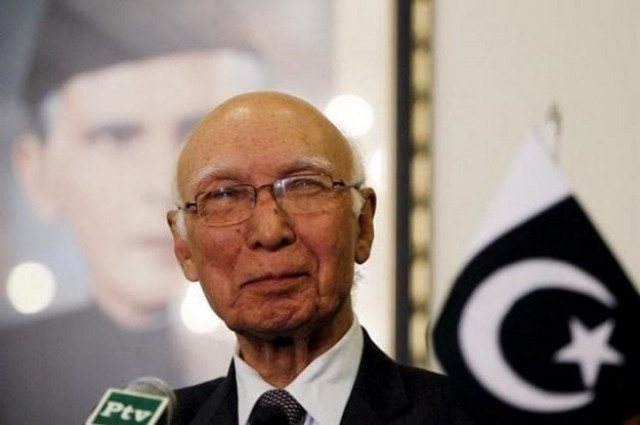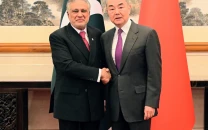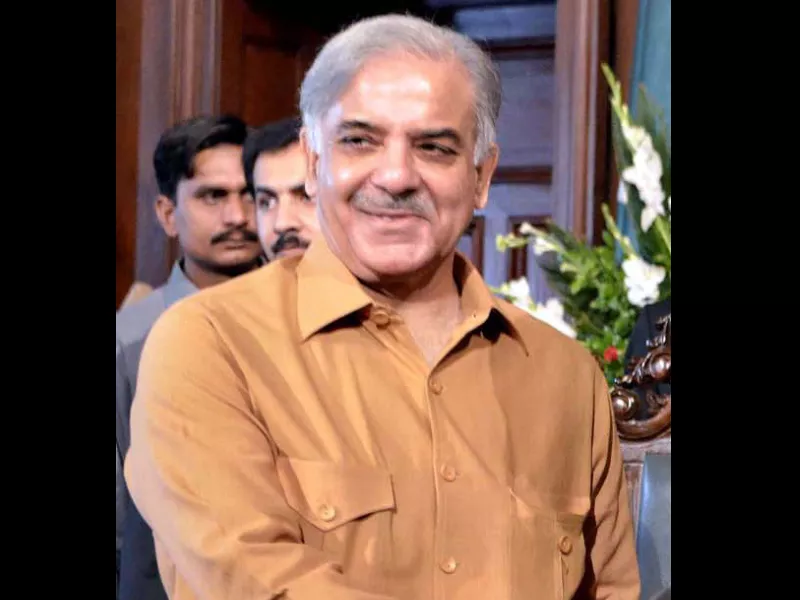Sartaj Aziz fails to satisfy Senate on Saudi alliance’s mandate
Insists member states free to choose which coalition activities they want to take part in or not

PHOTO: REUTERS
Responding to a calling-attention notice moved by PPP’s Farhatullah Babar, Aziz said the Saudi foreign minister conveyed to him two years ago that member states would be free to decide if they want to take part in or abstain from any activity of the alliance.
“When it was announced back in 2015, it was clarified [by Saudis] that it would be a coalition rather than an alliance, which requires a formal agreement. It was also clarified that all members will decide by themselves which activity they would participate in and which they would not,” he said.
According to him, these activities could include political consultations, intelligence-sharing, capacity-building, developing counter-narrative and military cooperation.
Sartaj to brief Senate on Saudi military alliance today
Despite being known for his articulate style, Aziz this time did not have answers to queries put forward by opposition members and the Senate chairman, particularly about the perception of the Saudi coalition about Iran.
The adviser struggled to satisfy such apprehensions, prompting Senate Chairman Raza Rabbani to reiterate his earlier ruling on placing terms of reference (ToRs) for the coalition before parliament for a thorough debate.
Aziz was either elliptical or termed some pointed questions hypothetical. Most of what he stated before the upper house was limited to information provided to the Government of Pakistan one and a half years back when the Saudis formally invited Islamabad to join the coalition.
“At that time we were also told that a meeting of defence ministers will formulate programmes and mechanisms for this coalition. Since no such meeting has taken place, no ToRs have been formalised yet,” he said.
However, he insisted that Saudi Arabia’s anti-Iran statements and the final declaration of last week’s Arab-US summit were of a political nature and did not suggest this coalition would be asked to use force against Iran.
Pakistan draws redlines for joining Saudi alliance
“Statements of Saudi authorities are not ToRs. These are suppositions only,” said the PM’s advisor referring to statements by the Saudi authorities that the Islamic military alliance will not be restricted only to terrorist organisations like Da’ish and al Qaeda but also take action against the rebel groups posing a threat to any member country, on that country’s request.
He said such statements referred to Yemen, which has virtually become a battleground in Saudi-Iranian proxy war. He admitted that the recent Saudi-sponsored moot where Pakistan was represented by Prime Minister Nawaz Sharif created a ’further divide’ among Muslim countries.
Referring to foreign policy guidelines formulated in a joint session of parliament in April last year, Aziz promised the government would not deviate from them. The guidelines mentioned that Pakistan was committed to the territorial integrity of Saudi Arabia and the Harmain Sharifain. However, they also clearly mentioned Pakistani troops would not be deployed outside Saudi Arabia.
He expressed ignorance over terms of employment for Gen (retd) Raheel Sharif as the head of the alliance, but said it would not affect Pakistan’s stated foreign policy. “Gen Raheel was selected due to his vast experience in counter terrorism. I am not aware of the ToRs of his employment.”
This prompted Rabbani to ask Aziz whether the government had disowned Gen Raheel and whether the former army chief would still head the coalition if it decided to go against any particular country. Aziz termed these questions ‘hypothetical’ and asked the house to wait for the finalisation of ToRs.
Meanwhile, Farhatullah Babar said claims about the Islamic military alliance’s mandate -- a serious national security concern -- had resulted in contradictions galore. He said while parliament was initially assured that the alliance would only fight terrorism, the Arab-US summit appeared to have turned its guns toward Iran.



















COMMENTS
Comments are moderated and generally will be posted if they are on-topic and not abusive.
For more information, please see our Comments FAQ